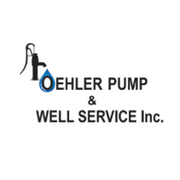What to Know About Rusty Water From Wells

While you rely on a well to supply your home with clean water, certain factors can cause rust to form. These deposits often develop when iron accumulates in the water, leaving it an unsightly orange-red hue. Iron in water typically doesn't pose a health threat, but excessive amounts can cause other problems. The following guide includes ways to identify rusty water and steps you can take to resolve the issue.
How Does Rust Enter Well Water?
Seepage is often to blame for rust formation. It occurs when surface water, such as rainfall, percolates through the soil and comes into contact with the well water supply. As the water travels, it picks up iron in the soil and rocks underground and carries the metal to the well. When it comes into contact with oxygen in the water, it creates rust.
What Are Some Signs of Rusty Water?

Water contaminated by iron may be discolored, appearing brown, orange, yellow, or red, and take on an unpleasant odor and taste. It may cause ring-shaped stains to form on sinks and bathtubs and can leave splash marks on fixtures. The discolored fluid could also cause stubborn laundry stains and prevent dishes from getting completely clean. The more iron in the water, the more difficult it is to remove these stains. Iron can also clog your pipes and appliances over time.
What Should You Do if You Suspect Rust?
A water well contractor can perform a comprehensive assessment and sample the liquid to determine the level of iron present. Since the iron may enter the supply underground, a cartridge filter can be installed to stop the metal from infiltrating your home’s water supply. While you wait for installation, avoid using your well water. Hand-wash your dishes and use bottled water instead of tap.
If you suspect there’s rust in your well water, contact the team at Oehler Pump & Well Service for a thorough assessment. They have served homeowners throughout Mecklenburg, Iredell, and Cabarrus counties in North Carolina since 1970. The company offers high-quality filtration to capture iron before it contaminates your supply. Visit the website to learn more about their services, or call (704) 875-2209 to schedule an appointment.
About the Business
Have a question? Ask the experts!
Send your question

